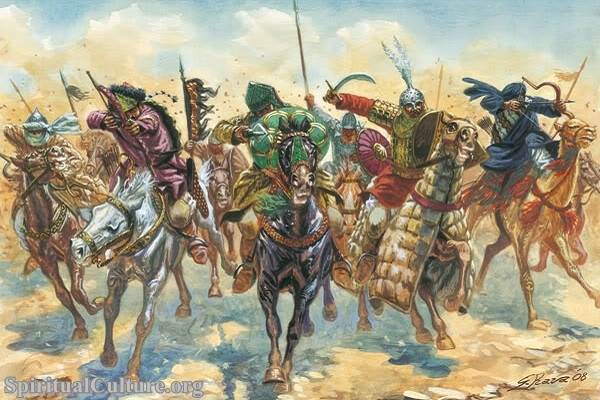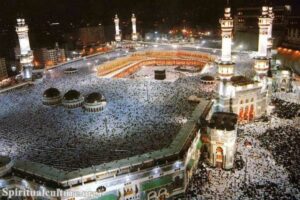The spread of Islam took place over several centuries and across various regions. Here are some key factors that contributed to the spread of Islam:
Early Expansion (632-661 CE):
After the death of Prophet Muhammad in 632 CE, the first four caliphs, known as the Rashidun Caliphs, led the early Muslim community.
Under Caliph Abu Bakr, the Muslim community consolidated its control over the Arabian Peninsula through the Ridda Wars (Wars of Apostasy).

Caliph Umar initiated the conquest of neighboring territories, including the Byzantine and Sassanian Empires. Key battles, like the Battle of Yarmouk and the Battle of Qadisiyyah, led to the Muslim conquest of Syria and Persia.
Umayyad Caliphate (661-750 CE):
The Umayyad Caliphs continued the military expansion, reaching the Iberian Peninsula (Spain) in 711 with the conquest of Gibraltar.
The Umayyads also advanced into Central Asia, North Africa, and the Indian subcontinent.
The Umayyad Caliphate’s capital, Damascus, became a center for Islamic administration and culture.
Spread through Trade Routes:
Muslim traders and merchants played a crucial role in spreading Islam through extensive trade networks. The Indian Ocean and Silk Road routes facilitated the exchange of goods, ideas, and religious beliefs.
Muslim traders not only engaged in commerce but also contributed to the cultural diffusion of Islamic values, customs, and practices.
Islamic Golden Age (8th-14th centuries):
During the Islamic Golden Age, scholars in the Islamic world made significant contributions to science, philosophy, medicine, mathematics, and other fields.
The House of Wisdom in Baghdad became a renowned center of learning, attracting scholars from various cultures.
The Islamic civilization’s cultural and intellectual achievements enhanced Islam’s prestige and contributed to its spread.
Conversion through Interactions:
Muslim communities often coexisted with non-Muslim populations in conquered territories. Over time, interactions and cultural exchanges contributed to the conversion of local populations.
The spread of Islam in India, for example, involved both military campaigns and peaceful interactions, leading to the gradual conversion of many.
Influence of Sufism:
Sufism, the mystical and spiritual dimension of Islam, played a significant role in attracting people to the faith.
Sufi missionaries, known as Sufi saints or mystics, traveled to different regions, emphasizing spiritual experiences and a personal connection with God. This approach resonated with diverse audiences.
Islamic Empires:
The establishment of powerful Islamic empires, such as the Abbasid Caliphate, the Ottoman Empire, and the Mughal Empire, contributed to the spread and consolidation of Islam.
These empires not only expanded territorially but also promoted Islamic culture, architecture, and governance.
Tolerance and Coexistence:
In many cases, conquered populations were allowed to practice their own religions, contributing to a level of religious tolerance under Islamic rule. This policy often facilitated peaceful coexistence and conversions.
The spread of Islam was a dynamic and multifaceted process, shaped by a combination of military, economic, cultural, and intellectual factors. It occurred over several centuries and across diverse regions, leaving a lasting impact on the civilizations that embraced the Islamic faith.


